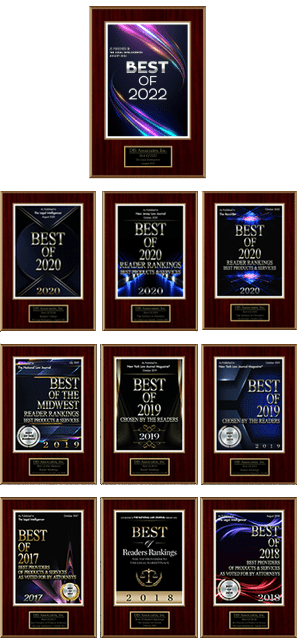MLB Stadium Security Case Study

Gil Fried, Sport, Facility, and Crowd Management Expert
Case Summary: When stadium security personnel questioned an attendee’s behavior at a Major League Baseball (MLB) team’s home opener, Plaintiff verbally intervened to defend his fellow fan. Security responded by ejecting both men from the stadium and denied Plaintiff information about why he was ejected. Outside the stadium exit, a fight broke out between Plaintiff and security personnel employed by the MLB team, including several off-duty police officers. During this altercation, Plaintiff sustained a head injury.
Expert Analysis: The incident began when stadium security personnel addressed an attendee seated near Plaintiff about possible use of marijuana. Plaintiff became increasingly agitated as he was ejected along with the other attendee. Testimony about the altercation that occurred differed between Plaintiff and the security personnel involved.
One officer indicated that Plaintiff took a swing at him and hit him on the chin. Plaintiff, however, claimed he swung and missed. The officer responded by striking Plaintiff several times in the torso. Plaintiff was then forcefully subdued. As officers brought him down to the ground to be handcuffed, Plaintiff hit his head against the fence and was injured. Video of the incident shows one officer had his knee on or close to Plaintiff’s neck and Plaintiff is heard shouting, “I can’t breathe.” However, all the off-duty officers testified in deposition that they had not put their knee on Plaintiff’s neck, nor heard him shouting that he could not breathe.
Plaintiff’s counsel retained a sport, facility, and crowd management expert to provide analysis centered around three primary questions:
- Did the stadium apply adequate crowd management techniques?
- Were security personnel properly screened before hire?
- Were security personnel properly trained before their first day on the job?
Did the stadium apply adequate crowd management techniques?
The National Fire Protection Association’s (NFPA) Life Safety Code mandates that larger venues should have one trained crowd manager for every 250 people in attendance. This code also recognizes that the ratio between trained crowd managers and attendees may be changed depending on the type of event. For example, an event with an anticipated passive crowd may require fewer crowd managers, while an event with an anticipated active crowd may require more.
What constitutes a trained crowd manager? Law enforcement training does not automatically qualify a person as a trained crowd manager. Effective crowd management requires specialized appreciation of time, place, speed, movement, risk management, and other strategies to help provide a safe environment.
Were security personnel properly screened before hire?
Proper screening of potential hires is especially important for security positions. Through the course of this case, it was revealed that the MLB team had not performed independent background checks on sworn police officers hired for security personnel positions, as management had assumed they were fit for such roles. This assumption failed to consider the possibility that a law enforcement agency could still employ an officer with multiple complaints against them, or that a police officer’s training might not directly translate to the role of security personnel at a large venue with a capacity of over 50,000 people.
Law enforcement agencies have no obligation to provide notice of complaints against their officers to other employers. By neglecting to perform independent background checks on sworn police officers hired as stadium security personnel, the MLB team had potentially assigned individuals with problematic backgrounds to these positions.
Were security personnel properly trained before their first day on the job?
The MLB team’s security manual was a comprehensive document that directed front-line staff, including security personnel, to approach all game attendees with respect and empathy. Notable points included:
- The customer is the most important visitor.
- Expect the experience to be safe and friendly.
- Never assume a defensive position.
- Workers must demonstrate patience, empathy, and genuine concern.
- Provide helpful information. When a guest has a question, offer a solution and respond quickly with kindness and understanding.
- Be considerate to others.
While these are great points to have in writing, it is more important that all venue staff are trained to embrace and execute these high standards. For at least one of the security personnel involved, the day of the incident was their first day working at the stadium. This raised concerns that they had not yet been properly trained to perform their duties to the standards that the MLB team expected.
Result:
Plaintiff was awarded $105,000 in punitive damages as compensation after the jury determined that one of the off-duty officers involved in the altercation had acted with malice, fraud, or oppression.
This case demonstrates a precedence to award punitive damages if security personnel act in a manner found to be inappropriate or excessive. Whether a concert or sport event, stadium visitors come in all shapes, sizes, dispositions, temperaments, and sensibilities. Incidents involving crowd management components must be reviewed with careful consideration to the facility policies and procedures concerning event security, staff hiring, and staff training, among others.
Gil Fried is a tenured Full Professor at the University of West Florida, where he also serves as associate dean of the Lewis Bear Jr. College of Business. He has 30 years of experience as an expert witness specializing in high-profile cases involving sport and concert venues.
Categories: Case Studies | Premise Liability | Safety | Sports & RecreationTags: Crowd Management | Event Security | NFPA | Risk Management | Stadium


